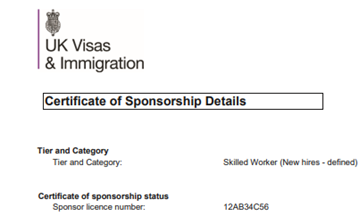Chemical and Related Process Operatives, classified under SOC Code 8113, are skilled individuals responsible for the intricate processes involved in chemical production and treatment. Their expertise is critical in a variety of industries, especially in textiles and materials manufacturing. Key responsibilities include:
- Loading Ingredients: Accurately loads prescribed quantities of ingredients into plant equipment to ensure proper functioning.
- Operational Monitoring: Starts the operational cycle, continuously monitors instruments and gauges, and makes necessary adjustments to maintain optimal conditions within the plant.
- Chemical Preparation: Prepares a range of chemical solutions, including dyes, bleach, and water repellents, essential for finishing and treating textiles.
- Polymer Processing: Regulates and inputs polymer materials into melting units, extruding them to produce synthetic fiber through advanced processing techniques.
- Material Production: Operates specialized equipment such as kilns and furnaces to produce carbon products like charcoal and coke.
- Coating and Impregnation: Utilizes machines for coating film and tape with sensitising materials, ensuring high-quality impregnation of various substrates.
- Leather Processing: Engages in cutting, trimming, and treating skins, hides, and pelts, transforming them into quality leather and fur products.
- Quality Control: Withdraws samples for thorough quality control testing, overseeing the discharge of batch material upon completion to ensure adherence to operational standards.
With an increasing demand for skilled operatives in the chemical sector, many organizations are looking to enhance their workforce with qualified professionals, making this role pivotal in ensuring high-quality production and compliance with safety regulations. This guide aims to assist HR professionals in the hiring and sponsorship of chemical and related process operatives under the UK immigration framework.
What is SOC Code 3411 for Chemical and related process operatives?
SOC Code 8113 refers to Chemical and Related Process Operatives who perform a variety of tasks related to manufacturing processes in the chemical and textile industries. Their responsibilities can include:
- Loading ingredients: Accurately measuring and loading prescribed quantities of ingredients into plant equipment to initiate processing.
- Monitoring operations: Observing instruments and gauges to monitor conditions affecting plant operations, making necessary adjustments to controls.
- Preparing chemical solutions: Creating solutions such as dye, bleaching agents, and water repellents to treat and finish textiles.
- Extruding polymers: Regulating polymer input into melting units, extruding the material, and processing it into synthetic fibers through rolling, cutting, and treatment units.
- Operating furnaces and kilns: Managing equipment used for producing charcoal, coke, and other carbon products through high-temperature processes.
- Coating materials: Operating machinery to apply sensitizing materials to films and tapes, while also impregnating various materials through immersion.
- Processing animal hides: Cutting and trimming skins, removing excess materials, and treating hides through processes like washing, liming, and dyeing to create leather and fur products.
- Quality control: Collecting samples for testing, ensuring adherence to quality standards, and regulating the discharge of materials upon completion of processing.
Chemical and Related Process Operatives are integral to the production processes within the chemical and textile industries, ensuring efficiency, quality, and innovation in the products created.
Eligibility to Hire Chemical and related process operatives (SOC Code 3411)
Job Description: Chemical and Related Process Operatives - SOC Code 8113
- Job Requirements
Chemical and related process operatives must demonstrate proficiency and possess specific qualifications or experience to effectively operate and monitor plant equipment. These may include:
- Operational Experience: Proven experience in loading prescribed quantities of ingredients into plant equipment and starting operational cycles.
- Monitoring Skills: Ability to monitor instruments and gauges to assess operational conditions and adjust controls as necessary for optimal performance.
- Chemical Preparation: Knowledge in preparing chemicals such as dye, bleaching agents, water repellents, and fixing salts for textile finishing and treatment processes.
- Polymer Processing: Experience in regulating the input of polymers into melting units, extruding polymer, and managing the production of synthetic fibers through various treatment processes including rolling and cutting.
- Machine Operation: Proficiency in operating kilns, furnaces, and ovens for producing carbon products like charcoal and coke, as well as machines for coating films and impregnating materials.
- Material Processing: Skills in processing organic materials including cutting, trimming, and treating hides and pelts for leather and fur products; experience in quality control and testing is essential.
- Attention to Detail: Strong ability to withdraw samples for quality control testing and manage the discharge of batch materials upon completion to ensure compliance with standards.
- Safety Compliance: Awareness of safety protocols and environmental regulations relevant to chemical processing and machinery operation.
Candidates should possess relevant experience in chemical processing, manufacturing, or a related field to meet the expectations for the role.
- Salary Thresholds
- Use the Minimum Salary Calculator to ensure your salary offer meets immigration requirements.
Sponsoring Chemical and related process operatives: A Step-by-Step Guide for HR Professionals
Once you’ve confirmed that the role and candidate meet the eligibility requirements, follow this step-by-step guide to sponsoring Chemical and related process operatives under SOC Code 8113.
Step 1: Obtain a Sponsor Licence
Before hiring non-UK Chemical and related process operatives, your company or institution must obtain a sponsor licence. This licence enables you to legally sponsor overseas Chemical and related process operatives under the Skilled Worker Visa program.
- Sponsor Licence Application: Submit documentation proving that your business is legitimate and has a genuine vacancy. Visit the sponsor licence application guide for more information.
- Sponsor Licence Fees: Small businesses typically pay £574, while larger institutions pay £1,579. For more information, visit the sponsor licence fees guide.
- Processing Time: Applications typically take up to 8 weeks, but using the Sponsor Licence Priority Service can reduce the processing time to 10 working days.
Once your sponsor licence is approved, you will receive a sponsor licence number, which allows you to assign Certificates of Sponsorship (CoS).
Step 2: Assign a Certificate of Sponsorship (CoS)
Once you have your sponsor licence, the next step is to assign a CoS to the Chemical and related process operatives. This document provides key details about the job and the individual being sponsored.
- Defined vs Undefined CoS: Use a Defined CoS for Chemical and related process operatives applying from outside the UK, and an Undefined CoS for those already in the UK. Learn more in the Defined & Undefined Certificates of Sponsorship guide.
- Required Documents: Provide details such as the Chemical and related process operatives’s portfolio, passport and job offer. Refer to Documents Required for Certificate of Sponsorship for a full list of necessary documents.
Step 3: Apply for the Skilled Worker Visa
Once the CoS is issued, the Chemical and related process operatives can apply for the Skilled Worker Visa.
- Visa Fees: Fees vary depending on the role and visa length—use the visa fees calculator to estimate the costs.
- Immigration Skills Charge: Employers are required to pay this charge as part of sponsoring non-UK workers. This is separate from visa fees.
Conducting a Right to Work Check for Chemical and related process operatives
Before the Chemical and related process operatives begins working, you must conduct a right to work check to ensure they are legally allowed to work in the UK.
- Manual Right to Work Check: Verify original documents such as the Chemical and related process operatives’s passport and visa.
- Online Right to Work Check: If the Chemical and related process operatives holds an eVisa, you can use the UK government’s online system to verify their right-to-work status.
For more details on how to perform these checks, see the right to work check guide.
Post-Hiring Responsibilities and Compliance
- Record-Keeping and Reporting
- Record-Keeping: Maintain accurate and up-to-date records of the Chemical and related process operatives’s employment details, salary and contact information.
- Reporting Changes: Report any significant changes to the Chemical and related process operatives’s role—such as promotions or salary increases—via the Sponsor Management System (SMS).
- Sponsor Licence Duties and Compliance
- Failure to comply with your sponsor licence duties can result in penalties or sponsor licence revocation, impacting your ability to sponsor future Chemical and related process operativess.
How Borderless Can Help with Sponsoring Chemical and related process operatives
Sponsoring Chemical and related process operatives under SOC Code 8113 can be a complex process, but Borderless can simplify it for you. We offer comprehensive support to help you manage the entire sponsorship process.
End-to-End Sponsorship Support
At Borderless, we assist with:
- Sponsor Licence Application: Guiding you through the application process and ensuring all required documents are submitted correctly.
- Certificate of Sponsorship Assignment: Streamlining the CoS process to make hiring easier.
- Compliance Management: Helping you stay compliant with immigration laws to avoid penalties.
If you need assistance with hiring or sponsoring Chemical and related process operatives, get in touch for personalised support.
Conclusion
Hiring and sponsoring Chemical and related process operatives under SOC Code 8113 can be a rewarding way to enrich the cultural landscape of your organisation. By following the steps outlined in this guide, you can successfully navigate the sponsorship process while ensuring compliance with UK immigration laws.
For further guidance, Borderless is ready to assist you with all your sponsorship needs. Contact us for expert advice.
Automate Home Office Audits with Borderless
The Borderless platform provides a centralized system for all sponsorships, automating reminders for key tasks and ensuring best practices across your organization, simplifying audit preparation and ongoing compliance.






